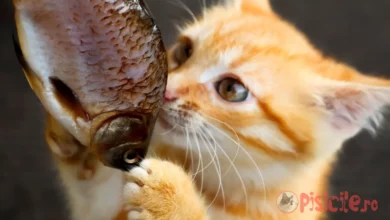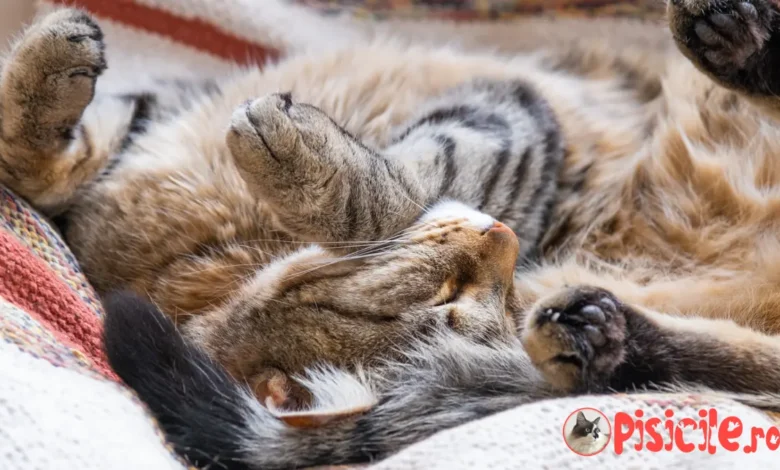
Cats are famous for their love of sleep, and if the cat sleeps a lot, it should not be a cause for concern for anyone. If you want to know more about cat sleep, what their sleep pattern looks like and what you need to know to make sure your cat has a healthy sleep, this article will help you.
Subject
How long does a cat sleep?
Sleep in cats is the biggest part of their life and we can say that for some of them it is almost a full-time occupation. On average, the cat sleeps between 12 and 16 hours a day. However, this range can vary depending on several factors, and some cats even get up to 20 hours of sleep in a day.
Age is an important factor influencing the duration and quality of sleep in cats. Kittens and older cats sleep more than young adult cats. Kittens, in particular, can sleep up to 90% of the day, as sleep plays an essential role in their development and growth. Even though they no longer use energy in the growth process, senior cats tire more quickly, and therefore they need a longer recovery period. So, don't worry if you notice that kittens or senior cats sleep up to 20 hours a day.
Activity level and environment are other factors that influence sleep in cats. A cat that is very active during the day will need several hours of sleep to recover. Also, the cat sleeps more when it is in a comfortable, warm and quiet environment.
Also read: Accommodating the cat in a new home - Useful Tips
However, cat owners need to be careful if excessive sleeping is the cause of a health problem. If the cat is sick or stressed it may sleep more than usual. In cases of extreme lethargy, a visit to the vet is recommended to rule out health problems.
How does sleep work in cats? The stages of sleep.
Just like humans, cats go through different stages of sleep.
Non-REM sleep in cats
Non-REM sleep in cats is divided into two distinct phases: Light Sleep and Deep Sleep (non-REM).
The first phase is that of light sleep. In this phase, the cat sleeps lightly, being able to wake up easily and react very quickly to dangers or changes in the environment. This is the transition stage between wakefulness and deeper sleep. Even though her eyes are closed, her brain remains alert and responsive to any stimulation in the environment, the cat being ready to stand up and act quickly if necessary.
In this phase of sleep, the cat sleeps most of the time curled up, with its ears facing outwards, ready to get up. Even if the cat's eyes are closed, small movements may be seen under the eyelids.
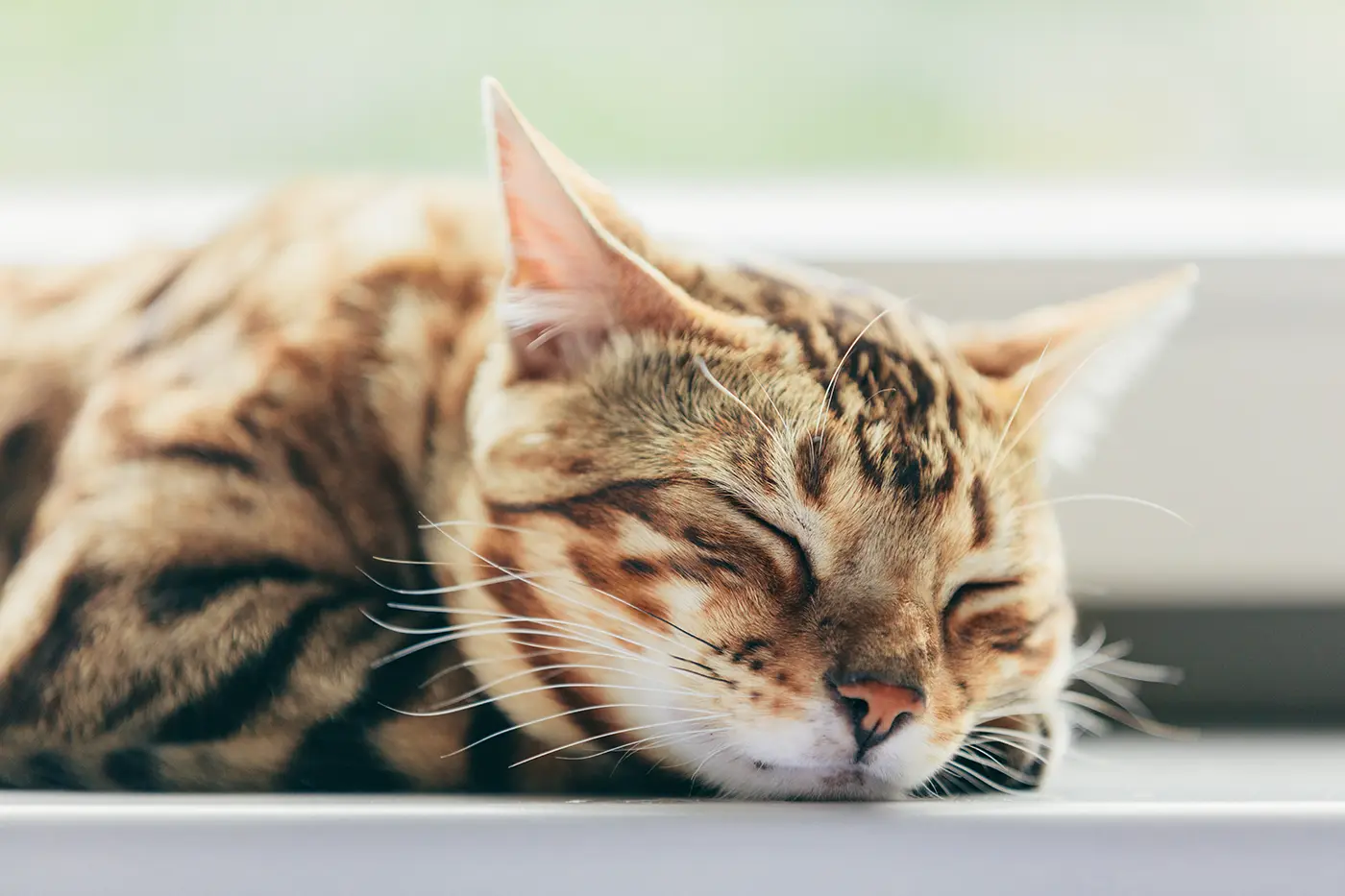
Another phase of non-REM sleep is the one of deep sleep. In this phase, the cat's body is completely relaxed, and brain activity is significantly reduced. In the non-REM phase of deep sleep, the cat is more difficult to wake up than in the phase of light sleep and does not react to external stimuli. It is deep, dreamless sleep. This phase of sleep is very important for tissue recovery processes and strengthening the immune system.
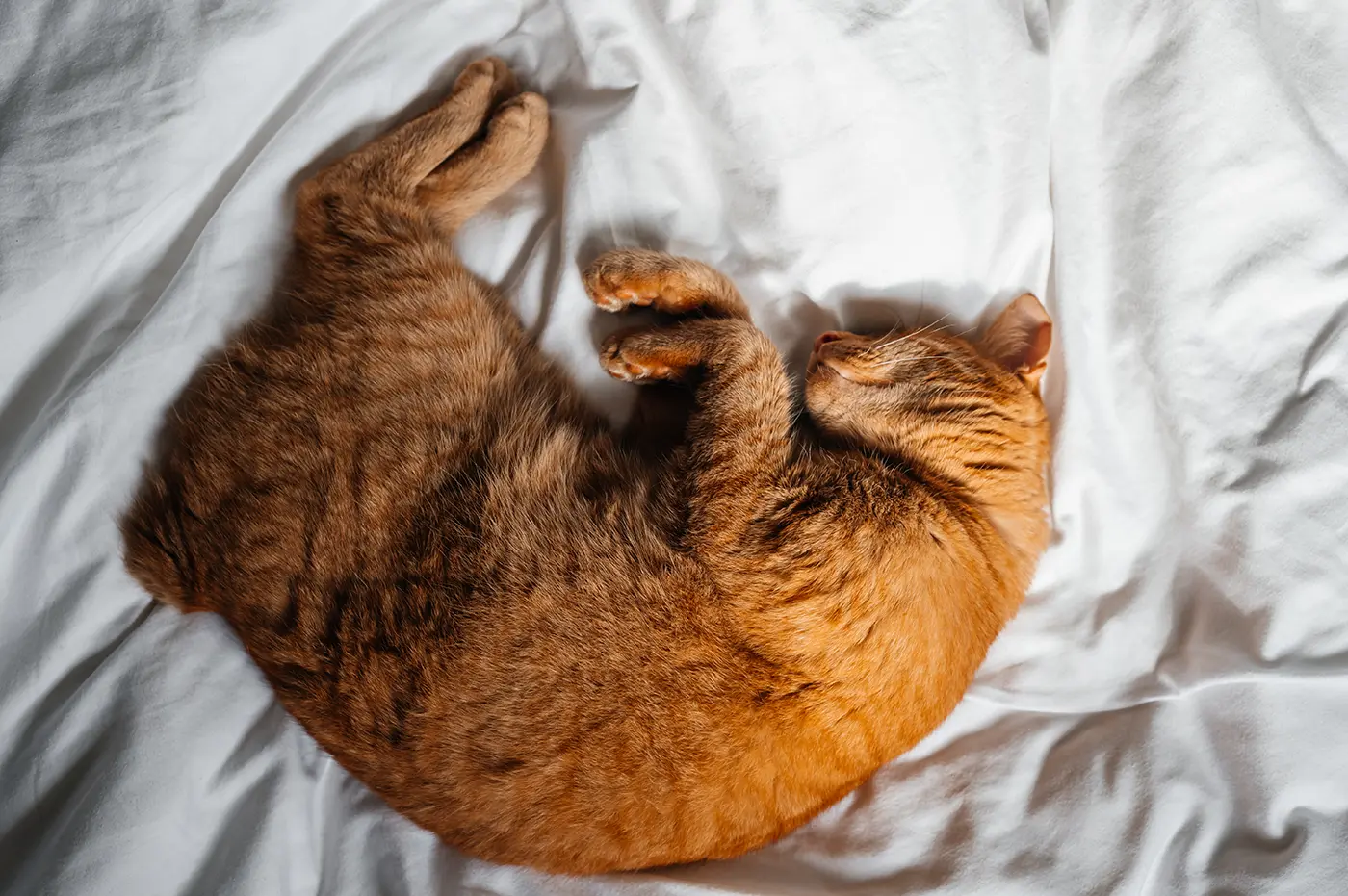
REM (Rapid Eye Movement) sleep in cats
In the REM sleep phase, the cat's eyes move rapidly under the lids, and the brain is very active. Often, during REM sleep, you can see slight movements of the paws, tail or whiskers, which indicates that the cat is probably dreaming about hunting or other similar activities. There are also cats that make sounds or meow during REM sleep.
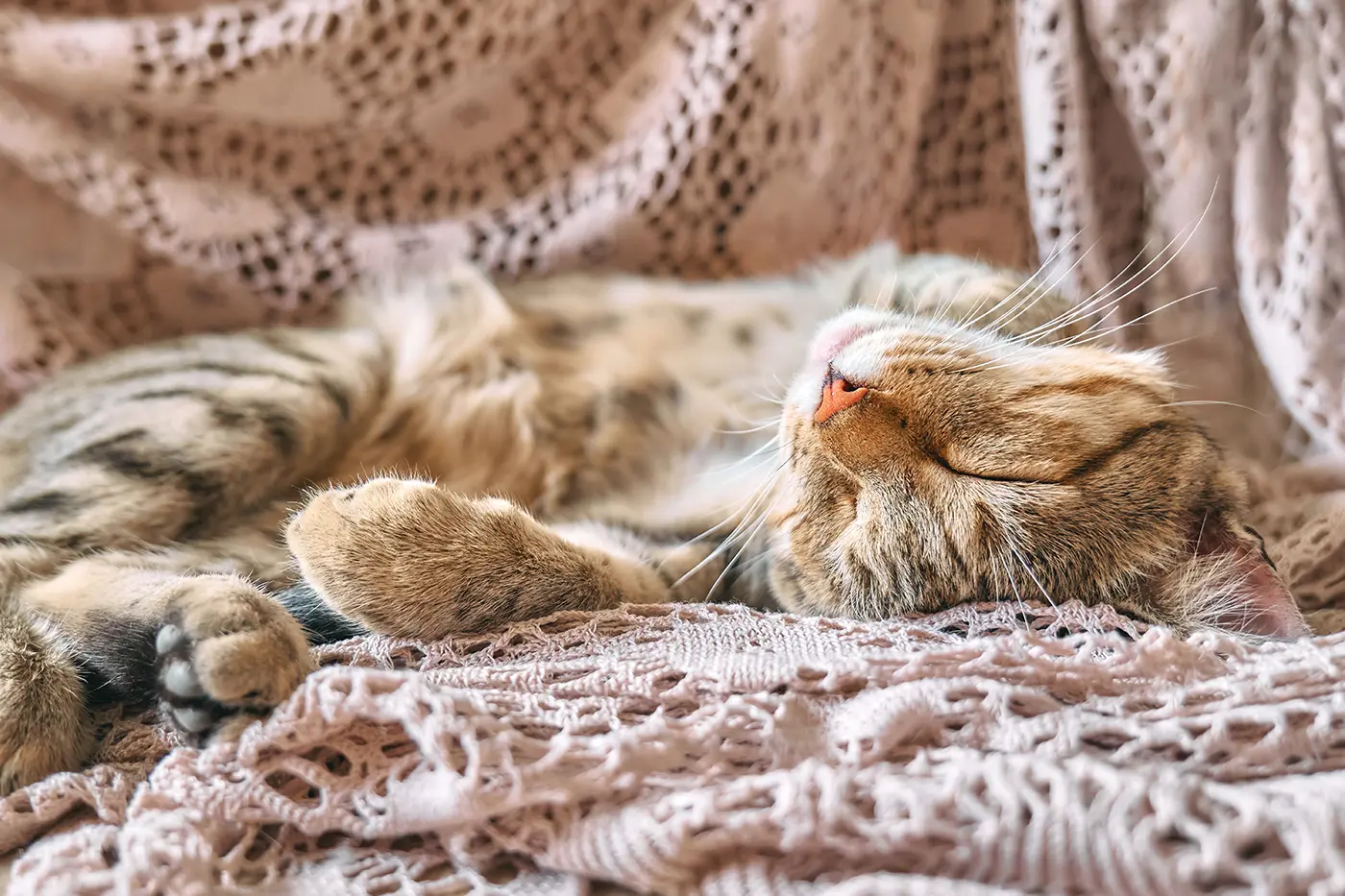
It is not advisable to wake the cat when it is in REM sleep, as it could become panicked very easily if it is taken out of its dreams.
Does the cat sleep too much? When to worry
Although it is normal for cats to sleep a lot, sometimes excessive sleep can indicate a health problem. If your cat is sleeping significantly more than usual and is also showing other symptoms, such as lack of appetite, weight loss or behavioral changes, it would be advisable to consult a vet. Health problems such as diabetes, hypothyroidism or kidney disease can affect cats' energy levels and sleeping habits.
Conversely, if your cat has an active and healthy lifestyle and still sleeps a lot, you most likely have nothing to worry about. Rest is essential for your cat's recovery from daily activities.


